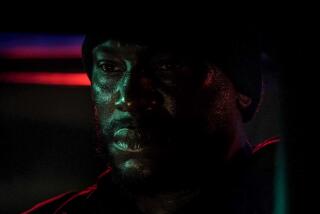Lessons for L.A. from 1992
In 1992, the acquittal of four police officers accused of beating Rodney King was the match that ignited a city, setting off a wave of violence that left 53 dead, thousands injured and hundreds of businesses destroyed.
There was a lot of accumulated tinder to burn. Los Angeles was struggling with a faltering and de-industrialized economy that left too many without good jobs, a wave of demographic transition that caused ethnic and generational tensions, and a widening gap between rich and poor that was just beginning to emerge into public view — a bit like the U.S. today.
But after the fires died out, community organizers, close to the ground that had given way, found that the frustration that caused residents to burn their own city could be channeled to transform it.
In the ensuing years, one South L.A. organization brought together residents to prevent the rebuilding of more than 150 nuisance liquor stores that had been magnets for crime. A joint labor-community effort emerged to fight for a living wage and then “community benefits agreements,” in which private developers promised and delivered good jobs for locals. Other groups worked to expand bus service, and still others motivated and mobilized new and occasional voters.
Top-down approaches were complemented by bottom-up strategies. The Christopher Commission and federal police oversight were positive engines of official change, and they were matched with grass-roots pressure that has fundamentally transformed the Los Angeles Police Department. In 2005, Los Angeles elected an avowedly progressive mayor, Antonio Villaraigosa, who has worked with community groups to clean up the ports, expand public transportation and take on a failing school system.
Meanwhile, multiracial coalitions have worked to reweave the fabric and reality of the city. Black and brown students led the charge for college-prep classes for every student in our school district. Immigrant Korean and Latino workers came together to force restaurant and hotel bosses to the bargaining table. And a labor movement largely revitalized by an immigrant workforce went to unionize security guards that were mostly African American.
The practical wins helped the region believe there was something other than a dystopian future after the grim reality of the riots — not to mention improving the day-to-day lives of many. And the patient, ongoing work of relationship-building across the city’s boundaries and differences allows grass-roots leaders to say now that there’s no way the same sort of civil unrest would happen today.
There are three important lessons from the last 20 years of organizing in Los Angeles to apply to the next 20 years in the United States.
First, it takes a movement. In 2008, the excitement about electing President Obama led reformers to dash to Washington in the hopes of selling bright ideas and shiny new programs. Everyone should have gone running in the other direction — back to their communities and the local work of holding elected officials accountable for practical, everyday change. If there was just one bit of wisdom to emerge from the L.A. story, it is that there is no substitute for grass-roots efforts (they were key to both the Obama victory and the rise of the “tea party”).
Second, it takes a comprehensive policy package. Too often, reformers promise a brave new world tomorrow without making today better than yesterday. In Los Angeles, the bigger vision has been accompanied by the sort of small steps — a living-wage ordinance, an agreement to freeze bus fares, a strategy to change school construction practices — that helped convince people that organized reform efforts can work.
Third, it takes time. What has grown in L.A. over the last two decades is anything but a quick fix — we’re still in the thick of it, and high poverty and low high school graduation rates are evidence of the remaining challenges. But the emphasis on patient community organizing and movement building — rather than raging tit-for-tats over politicians’ gaffes or the latest viral video — suggests a better, albeit longer, path from the ashes of our national economic crisis.
Los Angeles was a city on the edge in 1992, one tipped over by riot and rebellion. Now the United States finds itself on its own sort of brink: The economic inequality often tolerated in a market society has become extreme, the racial tensions kept hidden by polite conversation are bubbling up, and the path ahead is uncertain. The hurly burly of politics matters in setting broad policy, but steadfast activism, the kind of movement-building that bridges differences, is necessary to forge a new economy and a society that works for all.
Manuel Pastor is the director of the USC Program for Environmental and Regional Equity. Kafi Blumenfield heads the Liberty Hill Foundation.
More to Read
A cure for the common opinion
Get thought-provoking perspectives with our weekly newsletter.
You may occasionally receive promotional content from the Los Angeles Times.










